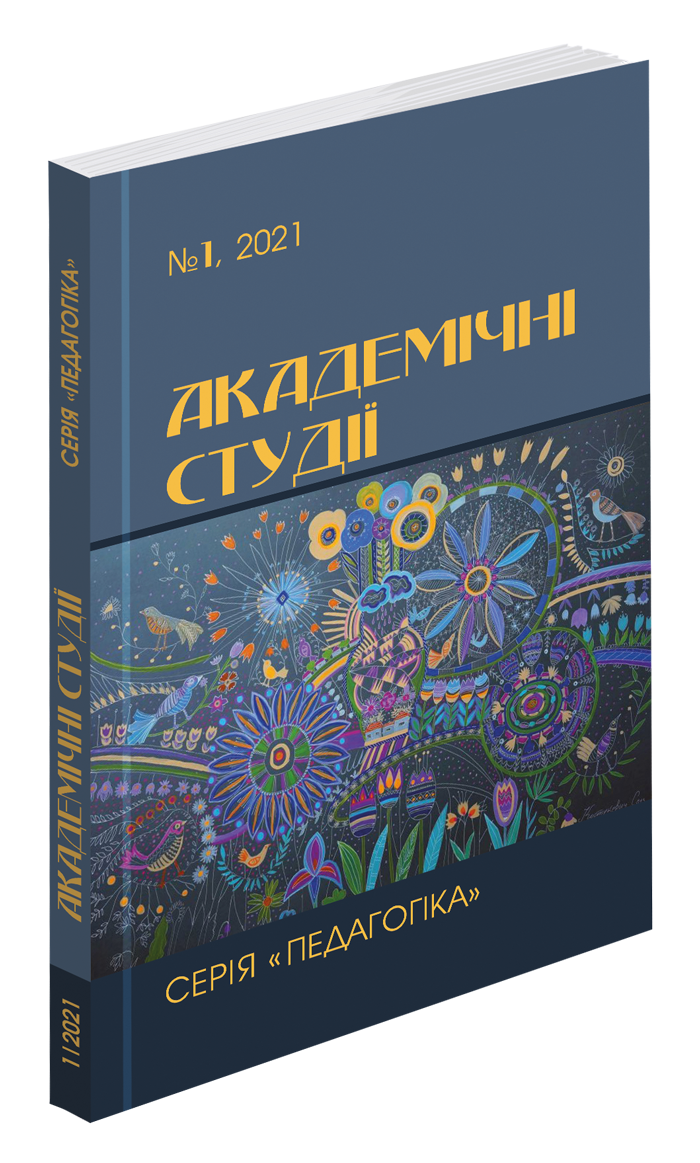Abstract
The article describes the forming and development of creative skills for the future teacher of musical art as one of the priorities in the systematic training of a young educator. Today the increase of the artistic and creative potential of the future teacher is closely linked to resolving of the important issues of education and upbringing in our society, increasing the role of the human factor in the general process of restructuring the social existence, development of creative activities for people in all spheres of social and cultural life. In these circumstances the great importance is attached to the training of the teacher as a balanced and socially active individual, who not only embodies and combines the general culture, professional skills and abilities, but is also characterized by creative approach to the profession of educating, prominently displayed orientation towards the aesthetically valued creative activity. The author of the article considers pedagogical creativity to be the demonstration of the advanced form of activity in the professional functioning of a teacher, the display of great professional skill. The key to the pedagogical creativity are the inborn and acquired skills of the teacher to be flexible in reacting to certain objective changes in the educational process, to introduce non-standard forms of education, and to refresh the content of the academic disciplines and teaching methods. When describing the creative skills of a future teacher it is important to point out the following ones: productive and creative thinking, imagination, fantasy, courage of thought, intuition, flexible thinking, motivation for innovative research, ability to improvise, propensity to destroy established stereotypes, etc. The author regards the process of forming creative skills as a complex, multifaceted and a multi-dimensional one, which is carried out during the entire course of teaching students in a pedagogical higher educational establishment. Today, in the course of practical training of the future teachers of musical art we increasingly turn to the forms and methods of active teaching through students’ creativity. After all, a graduate who possesses a constant and an established interest for creativity as well as the willingness and capability to implement his/her creative skills and abilities will be more successful in adapting to the future professional activity, and will be capable of creating his/her own style of pedagogical work.
References
Головін С. Словник практичного психолога. Мінськ, Хорвест, Видавництво АСТ, 2001. 800с.
Зуєнко Н. Діалогова сутність зорієнтованої парадигми освіти. Педагогіка вищої та середньої школи. Збірник наукових праць. Кривий Ріг, 2014. С. 191–197
Фурман А.А. Психодіагностика особистісної адаптованості. Наукове видання. Тернопіль : Економічна думка, 2000. 197 с.
Хуа Вей. Критеріальний аппарат діагностування творчого потенціалу майбутніх учителів музики. Актуальні питання мистецької освіти та виховання. Суми : Збірник наукових праць. Вип.1(9), 2017. С. 167–175.
Kretlow A. G., Wood C. L., Cooke, N. L. (2011). Using In-Service and Coaching to Increase Kindergarten Teachers’ Accurate Delivery of Group Instructional Units. The Journal of Special Education, 44 (4), 234–246. URL: https://doi.org/10.1177/0022466909341333 (Lass accessed: 23.03.2021).
Hatice Onuray Eğilmez, Özgür Eğilmez, Doruk Engür (2018). Democratic Perception and Attitudes of Pre-Service MusicTeachers in Turkey. Department of Music Education, Mehmet AkifErsoy University, Turkey. International Journal of Evaluation and Research in Education (IJERE) Vol. 7, No. 2, pp. 100~108.
Shannon D.K., Snyder P.A, Hemmeter M.L, McLean M. (2021). Exploring Coach–Teacher Interactions Within a Practice-Based Coaching Partnership. Topics in Early Childhood Special Education. 40 (4) 229-240. doi:10.1177/0271121420910799.
